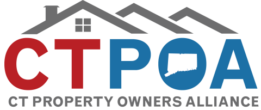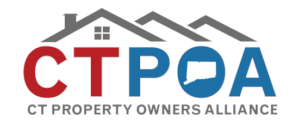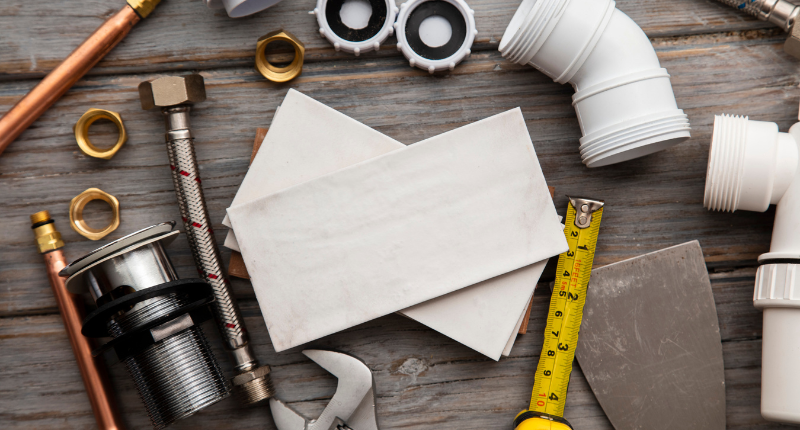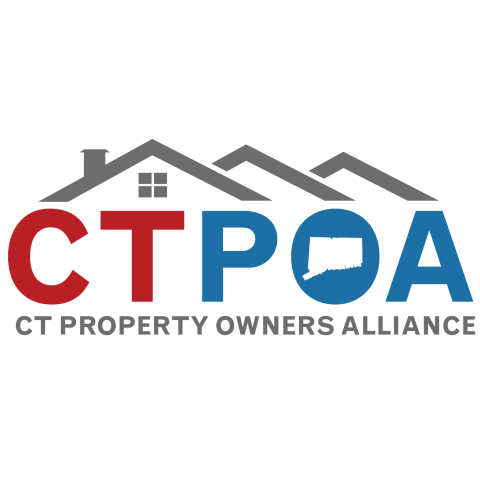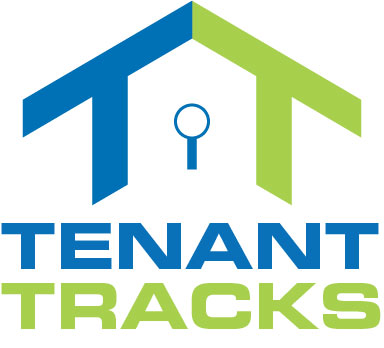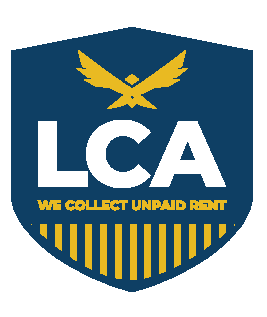As a landlord, you wear many hats: property manager, bookkeeper, marketer, and often, handy-person. Every time a tenant calls with a repair request, you face a critical decision: “Can I fix this myself and save some money, or is it time to call in a professional?”
This isn’t just about saving a few dollars; it’s about safety, legal compliance, long-term property health, and your peace of mind. The Connecticut Property Owners Alliance (CTPOA) understands the unique challenges and opportunities faced by landlords in our state. That’s why we’ve put together this comprehensive guide to help you confidently decide when to grab your toolbox and when to pick up the phone for a licensed Connecticut pro.
The Landlord’s Core Dilemma: Time vs. Money vs. Risk
The allure of DIY is strong. Every dollar saved on a repair is a dollar back in your pocket. However, a botched DIY job can lead to:
- Higher Costs: A simple fix turned complex, requiring a professional to undo your mistakes.
- Safety Hazards: Improper electrical work, plumbing, or structural fixes can endanger your tenants or the property itself.
- Legal Liability: If a repair isn’t done to code or causes harm due to negligence, you could face serious legal repercussions.
- Wasted Time: What you thought would be a quick fix can eat up your entire weekend.
- Tenant Dissatisfaction: Delayed or poorly executed repairs lead to unhappy tenants and potential lease non-renewals.
The key is to strike a balance. Let’s break down the factors to consider.
When to Confidently DIY: The “Checklist for Success”
Before you commit to a DIY repair, ask yourself these questions:
- Do I Possess the Necessary Skills? Be honest. Have you successfully done this type of repair before? Do you understand the mechanics involved?
- Do I Have the Right Tools? Attempting a job with makeshift tools is a recipe for disaster.
- Do I Understand the Safety Risks? Can this repair lead to electrocution, fire, water damage, or falls? Do you have appropriate safety gear (gloves, eye protection)?
- Is it a Non-Structural/Non-System Repair? Generally, repairs that don’t involve the building’s core structure, electrical grid, plumbing system beyond a simple leak, or HVAC system are safer DIY candidates.
- Is it Permitted by Law? In Connecticut, certain tasks require licensed professionals. Know your limits and the law.
- Do I Have the Time and Patience? Rushing a repair often leads to mistakes. If you’re stressed for time, consider hiring.
- Will it Look Professional? A sloppy DIY job reflects poorly on your property and your professionalism.
Common DIY-Friendly Repairs for CT Landlords:
- Minor Wall Damage: Patching small holes (nail holes, dings) in drywall, light spackling, and painting.
- Loose Handles/Hardware: Tightening cabinet pulls, doorknobs, or drawer handles. Replacing broken ones (ensure they match existing hardware).
- Running Toilets (Simple Fixes): Replacing a flapper, adjusting the chain, or fixing a leaky fill valve. These parts are usually inexpensive and readily available.
- Clogged Drains (Minor): Using a plunger, chemical drain cleaner (with caution and proper ventilation), or a simple hand auger for hair clogs in sinks or tubs.
- Leaky Faucets (Washer/Gasket Replacement): Often, a drip is due to a worn washer or O-ring, which can be replaced if you can access the parts.
- Changing Light Bulbs & Smoke Detector Batteries: Basic, but critical for tenant safety and often overlooked.
- Weatherstripping & Caulking: Replacing worn weatherstripping around doors/windows or re-caulking around tubs, sinks, or window frames to improve energy efficiency and prevent drafts.
- Blind/Shade Replacement: Swapping out old or broken window coverings.
- HVAC Filter Replacement: A simple, regular maintenance task that improves air quality and system efficiency.
- Grout Cleaning/Repair (Minor): Scrubbing dingy grout or fixing very small, superficial cracks in non-wet areas.
CTPOA Tip: For any DIY repair, always communicate clearly with your tenant. Let them know what you’re doing, when you’ll be there, and approximately how long it will take. This builds trust and manages expectations.
When to Call a Pro: The “Must-Hire” Scenarios for CT Landlords
There are specific situations where calling a licensed, insured professional is not just recommended, but often legally required or simply the smartest move to protect your investment and avoid serious headaches.
- Anything Involving Major Electrical Work: Unless you are a licensed electrician, leave anything beyond changing a light bulb to the pros. This includes wiring new outlets, replacing circuit breakers, or fixing flickering lights that aren’t due to a simple bulb issue. In Connecticut, major electrical work must be done by a licensed electrician.
- Major Plumbing Issues: Burst pipes, water heater replacement, sewer line blockages, gas leaks, or significant leaks that could cause extensive water damage. A tiny drip can become a flood if not handled correctly. Plumbing work in CT often requires a licensed plumber.
- HVAC System Repairs: Furnace issues, central AC problems, refrigerant leaks. These systems are complex, involve specific gases, and require specialized tools and knowledge. Many HVAC repairs in CT require licensed technicians.
- Structural Repairs: Any work involving load-bearing walls, foundations, roofing (beyond minor shingle replacement), or significant exterior damage. These directly impact the safety and integrity of the entire building.
- Gas Appliance Issues: Any repair or installation involving natural gas or propane lines and appliances (stoves, dryers, water heaters) should always be handled by a licensed professional qualified for gas work. This is a critical safety issue.
- Lead-Based Paint Abatement: If your property was built before 1978, it likely contains lead-based paint. Disturbing this paint during renovations or repairs can release hazardous dust. Connecticut has strict laws regarding lead paint, and specialized, certified professionals are required for proper abatement and even certain repair work that exceeds a certain amount of square footage being disturbed. This is not a DIY task.
- Pest Infestations: While you can set a mouse trap, widespread infestations (termites, bed bugs, rodents, wasps’ nests) require a licensed pest control professional. They have the knowledge and chemicals to effectively eradicate the problem safely and legally.
- Appliance Repair (Complex): While a clogged lint trap on a dryer might be DIY, a refrigerator not cooling, a dishwasher not draining, or an oven not heating often requires a trained appliance repair technician.
- Permit-Required Work: Many larger projects (e.g., adding a deck, significant remodels, changing window sizes) require local building permits. This work often needs to be done by licensed contractors and inspected by the municipality. Always check with your local Connecticut building department.
- Anything Beyond Your Comfort Zone: If you feel overwhelmed, uncertain, or that the repair is too complex for your skillset, call a pro. Your time and peace of mind are valuable.
CTPOA Tip: Always ask for proof of licensure and insurance from any professional you hire. In Connecticut, you can often verify licenses through the Department of Consumer Protection’s online database. Get multiple quotes and written contracts.
The Gray Area: When to Consider Both
Sometimes, a repair might fall into a gray area. Here, your judgment, budget, and access to reliable professionals come into play.
- Appliance Installation: While connecting a new washing machine might be DIY, installing a new gas range or a dishwasher with complex plumbing connections might be better left to the delivery team or a plumber.
- Minor Roofing Leaks: A single shingle replacement might be DIY if you’re comfortable on a ladder and understand safety. Multiple missing shingles or a larger leak, however, warrants a roofing professional.
- Flooring Installation: Laying new vinyl plank flooring in a small bathroom might be a weekend DIY project. But installing hardwood throughout a large unit or tackling complex tile work is usually best for a pro.
The Bottom Line: Protecting Your Investment and Tenants
For Connecticut landlords, the DIY vs. Hire decision isn’t just about cost. It’s about risk management. Ensuring your rental property is safe, habitable, and compliant with all state and local regulations is your fundamental responsibility.
While saving money on simple repairs is smart business, cutting corners on complex or safety-critical tasks can lead to far greater expenses, legal issues, and tenant dissatisfaction down the line. Build a trusted network of licensed, insured professionals for when you need them. Prioritize safety, professionalism, and the long-term health of your property.
By understanding your limits and leveraging the expertise of qualified professionals when needed, you’ll manage your Connecticut rental properties more effectively, reduce stress, and cultivate positive relationships with your tenants.
For more resources and guidance on managing your Connecticut rental properties, become a member of CTPOA for only $99/year. Invest in your success and peace of mind. For less than $10 a month, you can empower yourself with the knowledge and support you need to thrive in the Connecticut rental market. Join the group HERE.
